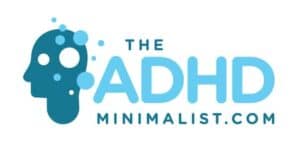
Rare disease day is the 28th of Feb (29th when it’s a leap year) Take some time this week and learn about a rare condition or disease.
Those with Williams syndrome are some of the nicest and friendliest people around. If you’re hearing about Williams Syndrome for the first time it may seem a bit far-fetched that a rare disease can cause people to be friendly, but ‘’Friendly’’ is the word most often used to describe those with this condition.
My children have a second cousin who has been diagnosed with Williams Syndrome. She is a fantastic girl! She and I took a special liking to each other. I enjoyed following her progress from a six-year-old to an outgoing teenager who is fun to connect with.
She has now turned 13 and her mother, my husband’s cousin, has graciously agreed to let me interview her about Williams Syndrome.

What are the early signs that a child may have Williams syndrome?
There are usually early physical signs like. . .
- Low birth weight
- ‘Failure to thrive’ during the infant year.
- Unique facial features
- difficulty in achieving milestones like Walking and talking until significantly later than their peers.
An official diagnosis, however, usually comes after doctors confirm cardiovascular problems that need treatment.
If Anna had not been my first child, I’m convinced I would have spotted the developmental delays much sooner than I did.
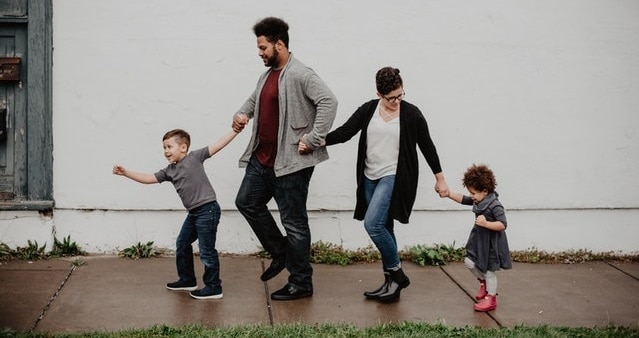
Is Williams Syndrome Hereditary or Genetic?
It is a genetic disorder caused by a spontaneous deletion of genes from one arm of chromosome 7.
It isn’t hereditary unless one of the parents has Williams Syndrome in which case there is a 50% chance of it being passed on.
This was important for me to find out because it would have been easy to beat myself up about what I could have done differently before or during pregnancy.

How rare is Williams Syndrome?
Williams syndrome seems to affect anything from 1 in 7500 to 1 in 20000 births.
In Sweden, a small country of 10,099,265 people between 6 and 12 children are born with the syndrome every year.
In the United States, a country of 331,002,651 people in any given year 16,550 – 33,100 babies are born with Williams Syndrome.
In Australia, they believe that Williams Syndrom often goes undiagnosed.
Approximately 1,274 babies are born with Williams Syndrome every year in Australia a country of 25,499,884, but in order to be part of the statistics, they first must be diagnosed.
We got Anna’s diagnosis a month after she turned two.
The neurologist who diagnosed her had previous experiences meeting other kids with Williams Syndrome and she confirmed her suspicions with a specific blood test.
At the time, a blood test was decisive in us getting a diagnosis as correctly diagnosing a rare genetic abnormality isn’t something you can take for granted.

Is Williams Syndrome Fatal?
In short, no.
Life expectancy could be reduced, though, if there are significant cardiovascular, kidney, or calcium issues often associated with the syndrome.
But of course, the same thing applies here as for life in general -there are no guarantees!

Why Does Williams Syndrome Make You friendly?
Scientists believe it is related to the levels of oxytocin.
Children with Williams Syndrome seem to have no racial bias, they also believe everyone has good intentions which makes them vulnerable and can be a constant worry to parents!
Their friendliness, however, makes them naturally easy to like and be around so there is a reason this particular syndrome has got the nickname cocktail party syndrome.
Anna’s mom

How does Williams Syndrome affect the intellect?
Most people with Williams Syndrome have got a mild to moderate intellectual disability.
Subjects like math are a significant challenge as is practically anything abstract.
After months of teaching, Anna learned that she mustn’t go out onto the road in front of the house.
We were then horrified to realize that that information didn’t automatically translate into the ability to apply the same information to all other roads.
The end result is that although we believe we can trust her to stay off the road at home, we can never relax in the assurance that she will stay safe on other roads. A daunting and scary thought!
Anna’s mom
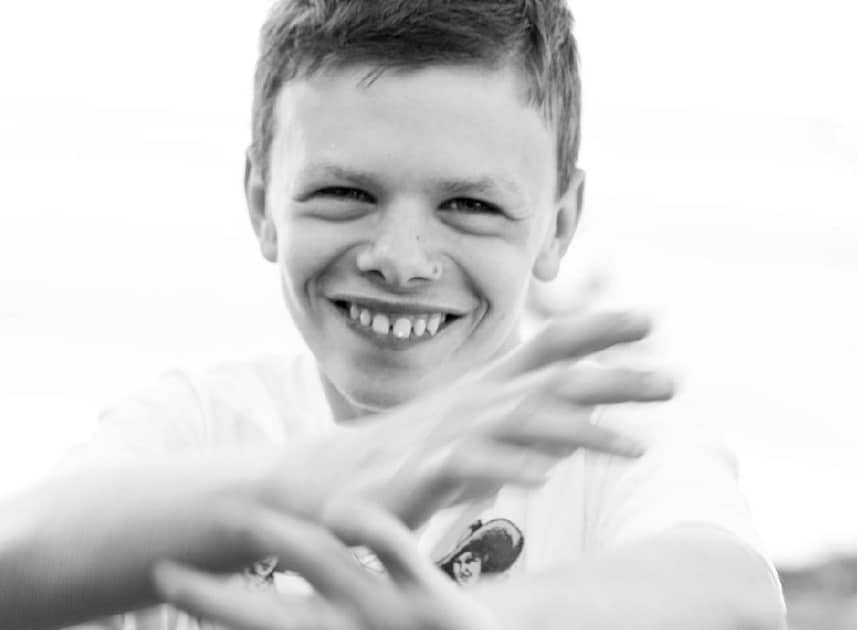
Are all parts of the body affected by Williams Syndrome?
In short, yes!
Everything from major organ issues to low muscle tone, joint issues, hormone balance problems, blood pressure concerns, etc.
The variations, however, are huge and no two individuals are the same as is the case for every single person with or without a diagnosis!

Can you explain what trisomy and monosomy are?
It seems that many people are confused about what causes Williams Syndrome When I polled my Facebook group most people thought that Trisomy or monosomy was the cause.
Are trisomy and monosomy related to Williams Syndrome?
A trisomy is when a person has three of a particular chromosome and monosomy is when they just have one chromosome -instead of the usual two.
Williams Syndrome is neither of these but rather a deletion where a part of chromosome 7 is missing.

Can you explain the difference between Williams Syndrome and Down Syndrome?
When I (ANNIE) asked about Williams Syndrome, in a Special needs parenting group I am a member of, many people confused it with Down Syndrome.
Down Syndrome is more common than Williams Syndrome so most people have heard of DS as opposed to the relatively unknown WS…
What the two have in common is an almost guaranteed learning disability (although the severity of the disability varies of course from person to person).
Typical for WS is their lack of visuospatial skills. They may struggle to. . .
- Make a bed
- Put together a model building kit
- Putt on a shirt, etc
At the same time, they have perceived good language skills.
People with Down Syndrome have lower language skills but better visuospatial skills.
WS children tend to focus on the details at the expense of the bigger picture and Children with DS tend to do the opposite.

Another question I get asked is if Williams Syndrome is a form of Autism. Can you explain why Williams Syndrome is different from Autism?
In many ways, Williams Syndrome is the opposite of autism as WS kids love to talk, socialize, make eye contact, etc.
These social skills are often lacking in children with autism.
At the same time, many children with WS also have an autism diagnosis.
The autistic characteristics in Anna are mainly focus-issues. She can sit for ages watching the washing machine rotate!
Anna’s mom
She also seems to somehow have the ability to ignore or at least control her fear of loud, motor-driven tools and appliances.
She can spend hours watching random clips on YouTube all of which show the seemingly meaningless activity of orbital sanders, hairdryers, and food blenders.

Is there anything you would like those who have never heard of Williams syndrome to know?
First of all, I would always encourage people to try not to let an unknown diagnosis scare them!
My constant wish is that people don’t assume that Anna can’t do something but rather give her the benefit of the doubt and the chance to give it her best shot.
Anna’s mom
I would also like us all to loosen up a bit!
Instead of feeling horrified if a stranger with WS asks you if you have an electric toothbrush or do you like Indian food because that’s what we are eating tonight, just go with the flow and delight them by saying ‘Yes I do -it’s a black and red one!’ or ‘Lucky you! I love Indian food…’

List of things a mom wishes the world knew about Williams syndrome.
- A child with WS is amazingly loving and often worryingly uninhibited
- Raising a child with WS is always going to be challenging one way or another
- Almost all children with WS have some sort of phobia (usually sound related for example a fear of fire alarms going off, young children screaming/crying, vacuum cleaners, etc)
- Following even simple instructions can be confusing for a person with WS and they often need to be closely supervised
- Their relatively good verbal skills don’t always mean they have understood or read the situation correctly. I often counter an instruction or statement with a question.
An example: Can you put your clothes in the wash basket? Is followed by: Where are you going to put your clothes? Or: We are eating in 10 minutes. Is followed by: When are we going to eat?
- The lack of sense of direction applies to a small grocery shop as well as a large city center.
- Poor circulation often means cold hands/ feet.
- A WS child’s ability to grasp a concept is often closely associated with their level of interest. If they must understand something -try to make it interesting
- Despite daily challenges, you will find that someone with WS manages to surprise you every day with their humor, lovingness, and genuine empathy towards other people
As a mother of kids with Special Needs (Two of my three kids have ADHD accompanied by dyslexia and some sensory issues) It wasn’t hard to meet Anna on her terms. I can have fun being with her and enjoy her for herself
.
I wish more Adults had the chance to meet people who are different from them regularly and learn to enjoy and not fear their differences!

Think twice before you react negatively to others!
Having two kids who didn’t fit in the typical mold I’ve been on the receiving end of many ‘Looks’ from other adults who didn’t think I handled situations with my kids correctly.
Unbeknownst to them If I had handled the situation with stereotypical parenting I would have made the situation much worse.
Annie Eklöv
Sometimes disabilities are not obvious at a first glance. Often parents of children with these types of disabilities are judged and misunderstood.
Parents of Kids with disabilities are Super Heros!
They often put up with extreme behaviors from their kids over small everyday things. Simple things like eating breakfast or tying one’s shoes can be an emotional rollercoaster.
If you don’t have a child with special needs it’s almost impossible to understand the daily battles these families face.
Annie Eklöv
Often parents of special needs kids are exhausted and in need of more care and concern from others as well as more time for self-care.
They definitely don’t need more criticism. I know from experience we are often experts at beating ourselves up and feeling guilty over things outside our control!
Next time you meet a family that functions differently than yours or people with special needs be positive and curious!
Instead of trying to ask what is wrong with someone’s child at the first opportunity try making encouraging small talk, ‘’Your daughter is wonderfully friendly’’ for instance.
In my case, I would love to hear, ‘’It’s great that your children love physical-activity so much. I wish I could get mine off the couch more often’’ instead of ‘’why can’t you get your kids to sit still?!?’’
Annie Eklöv
When assuming that ‘We Know’ what others think or feel we cease to be curious and we adjust our responses to suit our assumptions.
David Freeman (A Family therapist) encouraged his audience to remember that one does not know his or her spouse or his or her child.
(In the sense that we can never know what is going on inside other individuals not even those closest to us!)
His point is that we need to keep an open mind and not assume things about others. It is after all impossible to know exactly what anyone is thinking or feeling. Ourselves being the only exception.

Self-care for caregivers
Here is a link to my article about self-care for caregivers! This is what helped me when I was on the verge of depression. SELF-CARE FOR CAREGIVERS
Please read my post on raising a child with Williams Syndrome
This post is helpful for. . .
- Those who regularly meets someone with Williams Syndrome
- Anyone who wants to learn more about what Williams Syndrom is
- Parents who are raising a child or teen with Williams Syndrome
A MOM’S PRACTICAL ADVICE FOR RAISING A CHILD WITH WILLIAMS SYNDROME
Support for those with Williams Syndrome
Our society Williams Syndromföreningen in Sweden is very important for us and is where we parents get support and more knowledge. What you learn from other parents is different from all the talks you have with doctors often it’s the most valuable!!!
Lina KArna Kippel
There are similar Facebook groups and online support groups in the USA and other countries. You can search your Facebook groups to find a group in your language.
There are Facebook groups for both parents and those with Williams Syndrome in Sweden.
The ADHD Minimalist.com
My blog is mainly about helping families with ADHD. My son found that living minimally helped his ADHD symptoms, and theADHDMinimalist.com was born.
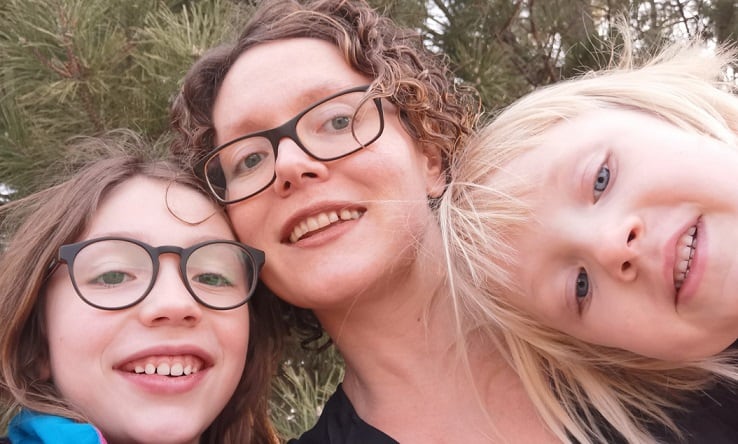
If you have ADHD in your family, check out the resources page.
Most of my articles on ADHD can be found here.
Articles written in the last few weeks can be found on the blog’s home page.
To preserve privacy, we used an assumed name in this interview. None of the pictures are of Anna, although, many of the pictures are of wonderful individuals, who have been diagnosed with Williams Syndrome!
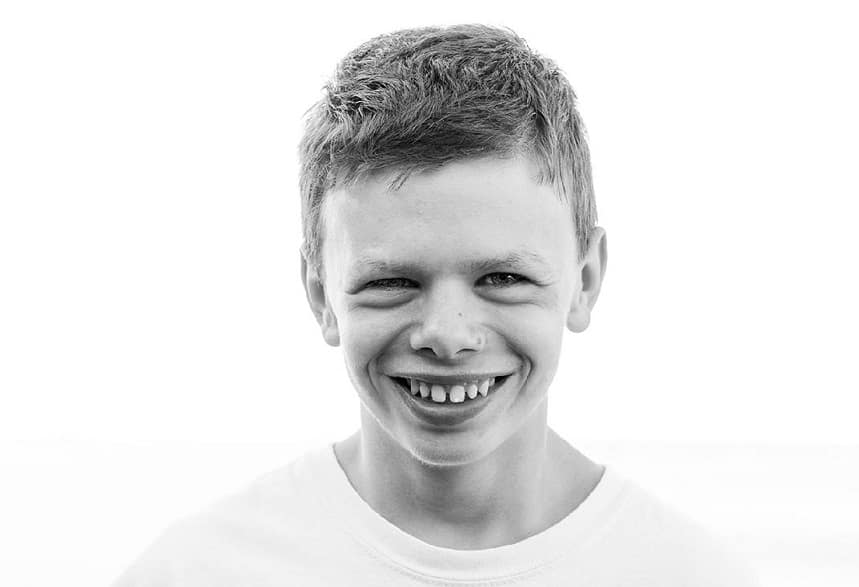
To find out more about Williams Syndrome, check out the links below.
https://www.rarediseaseday.org/
If you’re interested in Lina Karna Kippel’s photographs, (She took several of the pictures for this article) follow the link below.
LINA KARNA KIPPEL PHOTOGRAPHER
Sources
https://www.betterhealth.vic.gov.au/health/conditionsandtreatments/williams-syndrome
